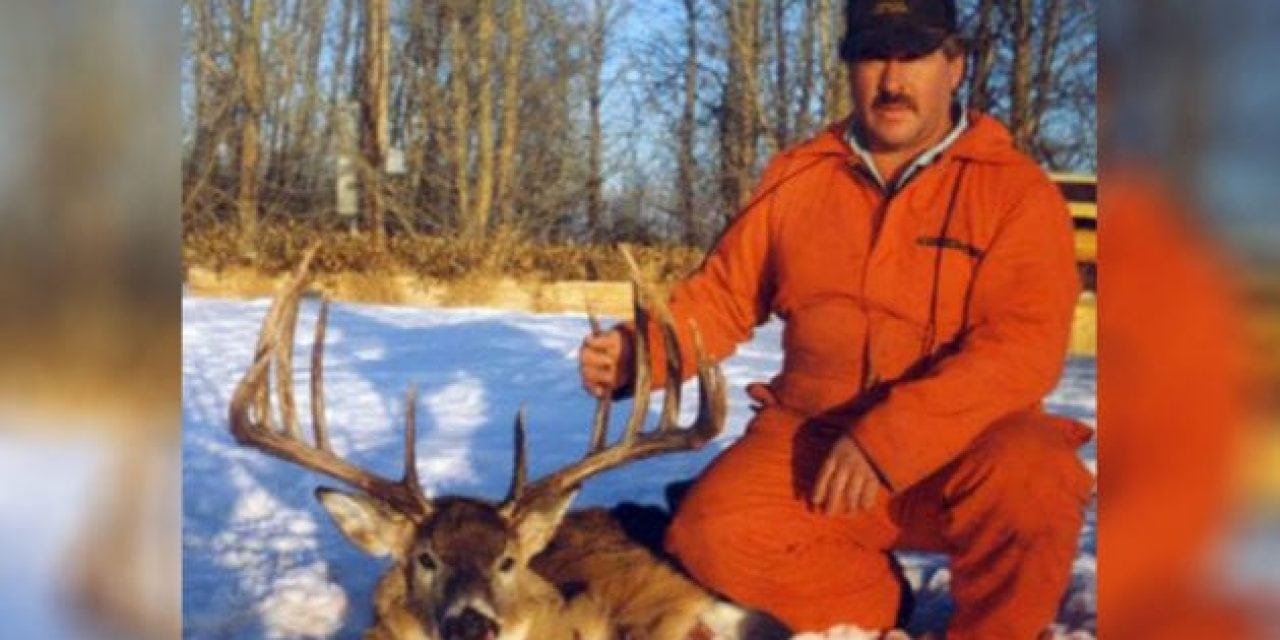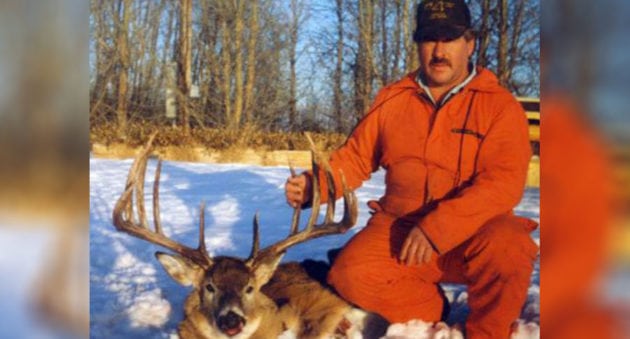
Where will the next world record fall? These are our best guesses.
In November, the whitetail world will be marking the 25th anniversary of Milo N. Hanson’s historic harvest of a massive 213-5/8-inch 12-pointer outside of Biggar, Saskatechewan, that re-wrote the record books. Do you feel old yet?
Considering the number of massive whitetails that’ve fallen in the years since, it’s surprising this record whitetail has held on for so long. Every deer season, the world waits to see if this is finally the year the record will fall.
Here at Wide Open Spaces, we suspect it’ll happen sooner rather than later. But where you might ask? For today’s #WhitetailWednesday, we give you our nine best guesses, from least to most likely, on where the next world’s record typical will fall and why.
9. Tennessee
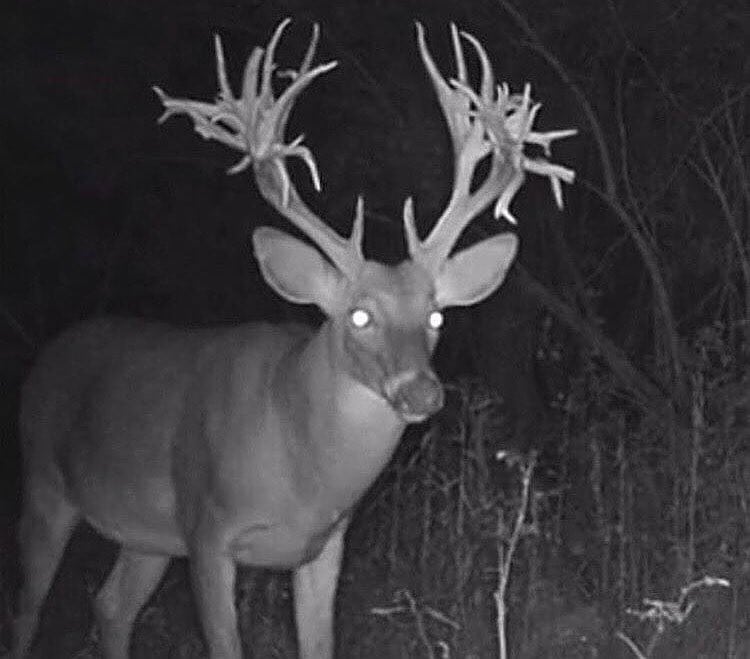
We admit it. The Volunteer State isn’t one that would’ve been high on our lists a few years ago. But Stephen Tucker’s 312-inch non-typical, now the largest ever taken by a hunter, changed all that. The Tucker buck came out of absolutely nowhere to shock the whitetail world. And who’s to say it can’t happen again?
According to TWRA records, Tennessee has never produced a 190-inch typical, let alone one over 200 inches. And, while this is true, the Tucker buck blew the old, non-typical state record out of the water by more than 40 inches. Granted, the odds of it producing a second world record are probably slim, which is why it’s low on this list. But, we just can’t take Tennessee’s big-buck potential lightly ever again.
8. Ohio
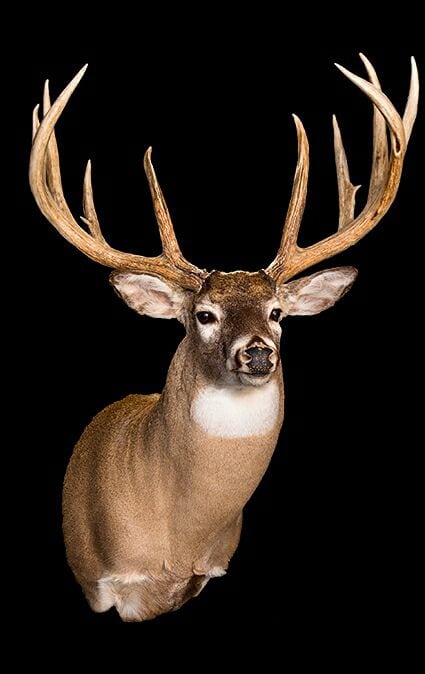
Everyone knows Ohio harbors some absolutely massive whitetail deer. Ohio has two bucks tied for the state record, the Brad Jerman and William D. Kontras bucks. Both are in the hard-to-reach, 200-inch-typical club at 201 1/8. And, there have been plenty of other whitetails in the high 190s that’ve fallen in the state over the years. All it takes is one buck in the right spot, with the right nutrients at the right time. Ohio can definitely provide that, especially in the more rural, agricultural areas.
Also, it’s worth nothing five of Ohio’s six all-time typicals have come in just the past 15 years, so the bucks are getting bigger. Granted, Ohio isn’t the first place most hunters would suspect for a new world record. But, if a challenger to the Hanson buck were to come out of the Buckeye State, it wouldn’t surprise us at all.
7. Minnesota
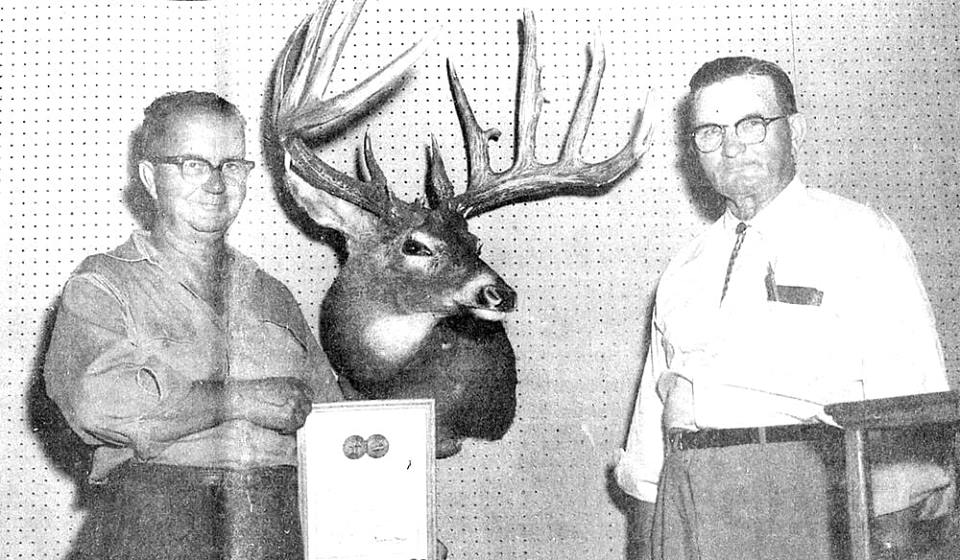
Home of John Breen’s 202-inch 10-pointer and Wayne Stewart’s 201-inch monster, the land of 10,000 lakes certainly has the pedigree for producing huge whitetails. It’s also home to bucks like the Glen Johnstone buck, the Vernon Jenson buck, the Curt Van Lith buck, the Robert Sands buck and the Barry Peterson buck. All of those were over 195 inches, and a few came just short of the 200-inch typical club.
The only reason we didn’t put it higher on the list was because it’s been quite some time since anyone’s seen a buck of that caliber in Minnesota. Of all the bucks we just listed, the most recent was Barry Peterson’s 195-7/8-inch monster in 1995. Still, we can’t count the Gopher State out as being a possible place for a new world record, since the state is probably due for another world-class typical any day now.
6. Illinois

Staying in the Midwest, the Land of Lincoln doesn’t seem to have been talked about as much lately as a big-buck factory. But let’s not forget the state is still home to Mel Johnson’s bow hunting world-record typical at 204 4/8, a record that’s stood since 1965! In a way, the Johnson record seems even less attainable than the Hanson record.
Illinois is a pretty boring state, as anyone who’s driven through it can attest, but all those corn and bean fields make for prime whitetail buck habitat and antler growth. Let’s also not forget about the monsters that got away. Such was the case with the Wensel buck, a ghost deer known from just a single 100-inch shed found in 1980.
Really, it’s been far too long since a 200-inch-net typical has emerged from Illinois. Maybe a hunter is watching a potential record on trail cams right now and 2018 will be Illinois’ year.
5. Nebraska

The Cornhusker State produced the 202-6/8-inch Kevin Petrzilka buck in 2010. While that buck is the only Nebraska buck officially in the 200-inch club, there’s no denying the potential is there for something much bigger.
In fact, it may have been home to the record already had a few bucks not gotten away. For instance, in the 1950s, Nebraska was home to a buck called “The General” that would’ve likely netted somewhere in the 220 range! But the buck is known only from a single set of sheds and it’s impossible to get an accurate score without an inside spread measurement.
The farmer who found those sheds has claimed there were three bucks of that caliber running around that year. If a hunter had met up with one of those deer, Milo Hanson might currently be holding the runner-up position in Boone and Crockett’s record book.
4. Kansas

Much like Nebraska, Kansas may have already had the world-record typical walking around there. The buck just never met up with a hunter. Such was the case with the Kansas King, a buck is estimated to have scored 217 inches based on a perfect set of 12-point sheds found there in the early 90s.
While there isn’t an actual 200-inch typical whitetail on the books in Kansas, the state’s abundant agriculture means plenty of food sources to help fuel big racks. And there are rumors just about every year of a potential world record wandering around the Sunflower State. It may just be a matter of time.
3. Saskatchewan
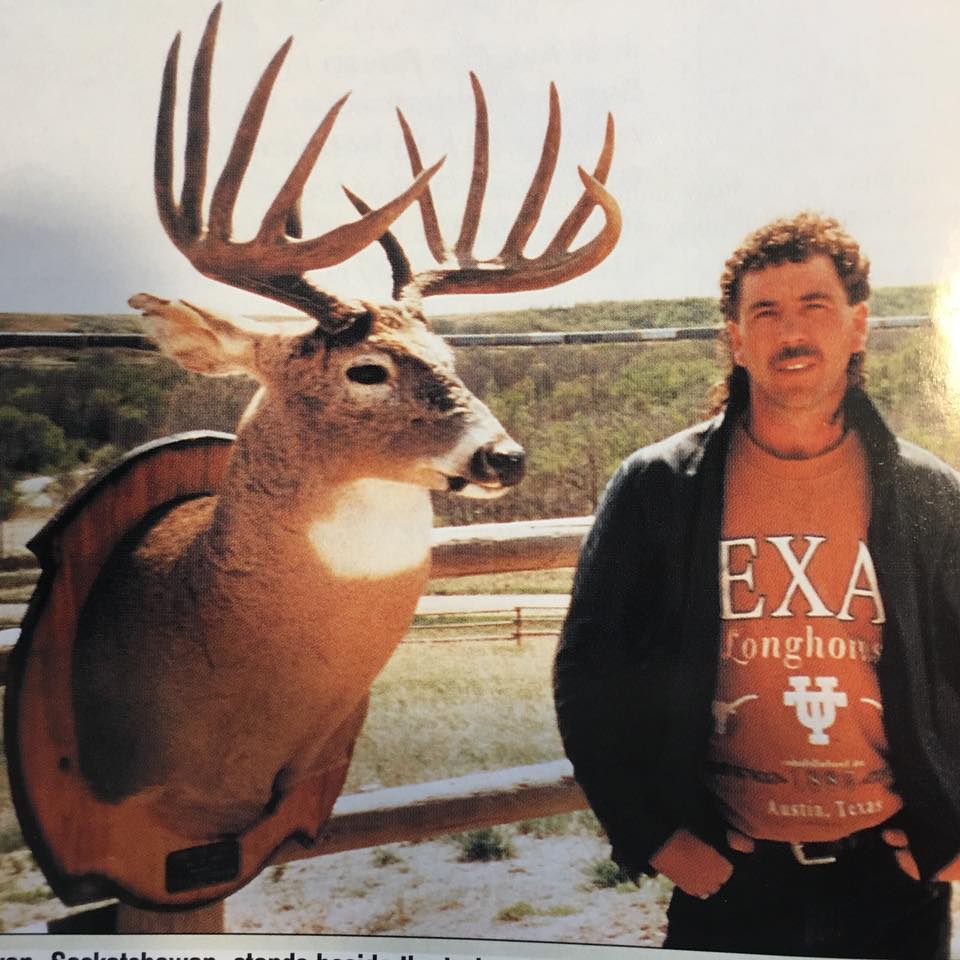
It did it once, it can do it again. It’s been a while since we’ve heard about a truly giant typical whitetail other than the Hanson buck from the Canadian Province. But, there’s no denying the place’s track record. Especially with all the areas of rich farmland where the bucks pack on the pounds to make it through the tough Canadian winters.
In case you thought the Hanson buck was a fluke, keep in mind Saskatchewan is also home to some spectacular typical bucks like the Peter Swistun’s 202-2/8-incher, Mark Hordeski’s 198-incher and the stunning Hubert Collins 203-3/8-incher.
Saskatchewan’s Henry Kelsey Provincial Record book requires a minimum score of 165 inches to qualify! That says a lot about the quality of deer there when compared to my home state of Michigan where 100 will get your name in the books for an archery kill. Need we say more?
2. Wisconsin

The Badger State earns a high spot on this list because many believe it should be home to the world-record typical whitetail right now. Countless hunters believe the Johnny King buck, taken in 2006, should already be the world record. But due to controversy centered on the buck’s right-side G3, the score was knocked down from almost 218 to 180 inches after it was determined the point was non-typical.
Some hunters have gone as far as calling King the rightful record holder, as this deer propelled numerous conspiracy theories regarding Boone and Crockett and the Hanson buck.
But before we get too wrapped up in the King controversy, let us also not forget Wisconsin is home to the legendary and former world record James Jordan buck, too. This state’s record of producing world-class whitetails is undeniable. It wouldn’t surprise us in the least to see Wisconsin hold the title once again.
1. Iowa
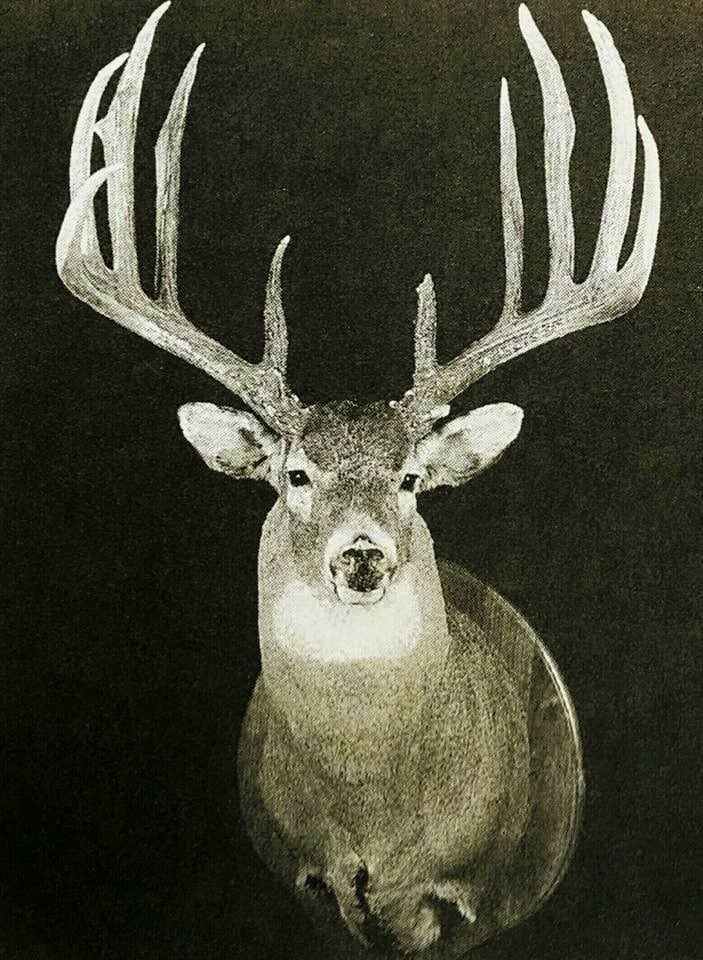
Whenever word of a new world-class whitetail hits, many people’s first question is, “Was it in Iowa?” The state has already been home to the largest non-typical whitetail killed by a hunter, so why couldn’t it house the biggest typical, too?
Iowa is home to the 201-4/8-inch Wayne Bills buck which was a deer many speculated would’ve toppled the James Jordan buck’s spot in the record books had it not broken a brow tine prior to being shot.
And then there are the legendary bucks like “Knife Handle,” a deer who may have scored as much as 240 gross typical inches! Too bad the deer is only known from shed antlers, and one of the main beams was destroyed, leaving the real score in the air.
However, it’s little wonder hunters from all over the country flock to the Hawkeye state every year hoping for their own chance at a giant. The state’s prime whitetail habitat is only bolstered by the state’s agriculture, which makes for some big deer.
The state’s been home to so many huge whitetails over the years that it just feels like a matter of time before Iowa re-writes big-game records and becomes home of the new typical world record.
NEXT: #WHITETAILWEDNESDAY: CHECK OUT 20 MORE INCREDIBLE VINTAGE HUNTING PHOTOS
The post #WhitetailWednesday: The 9 Most Likely Places the Next World-Record Typical Whitetail Will Fall appeared first on Wide Open Spaces.

